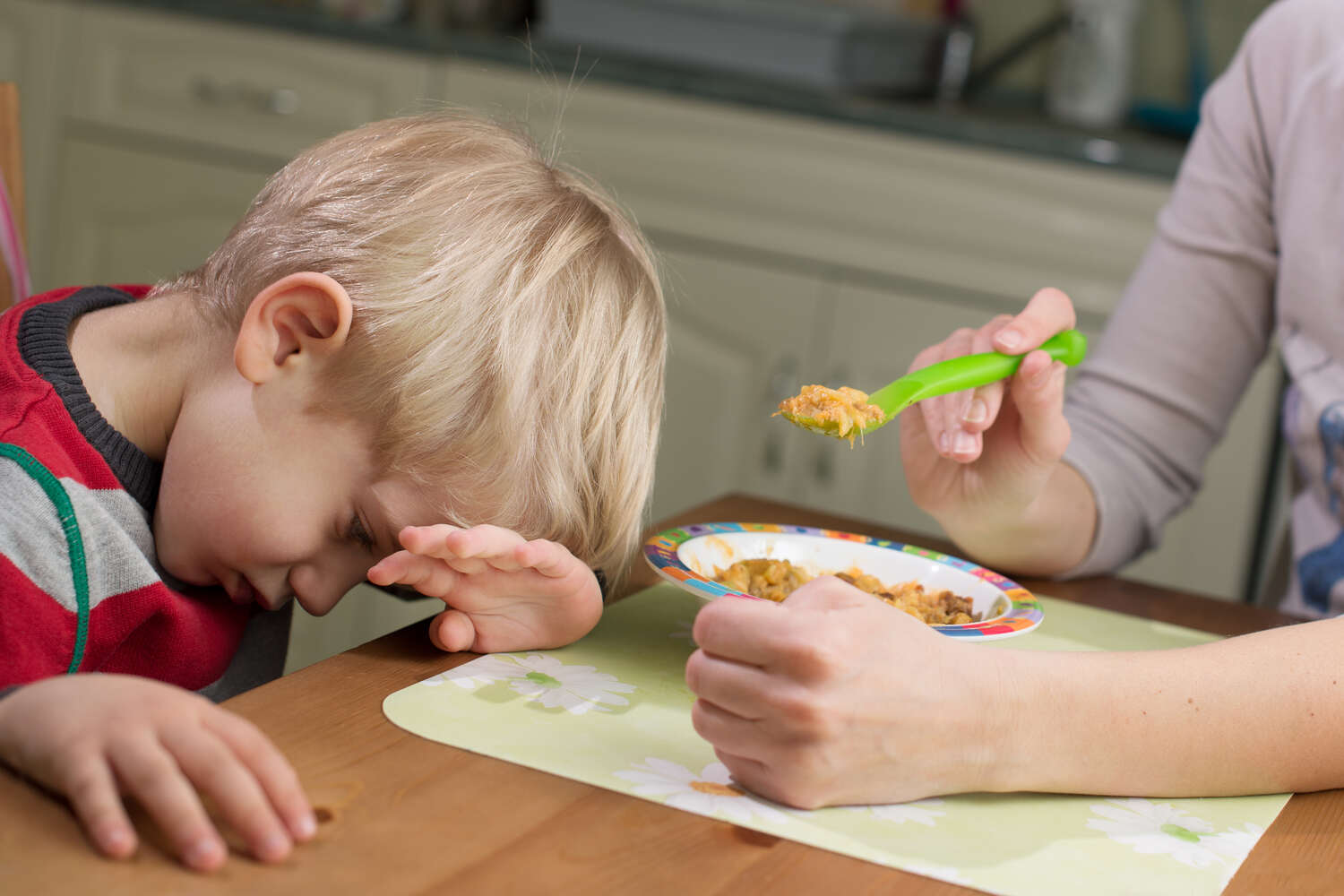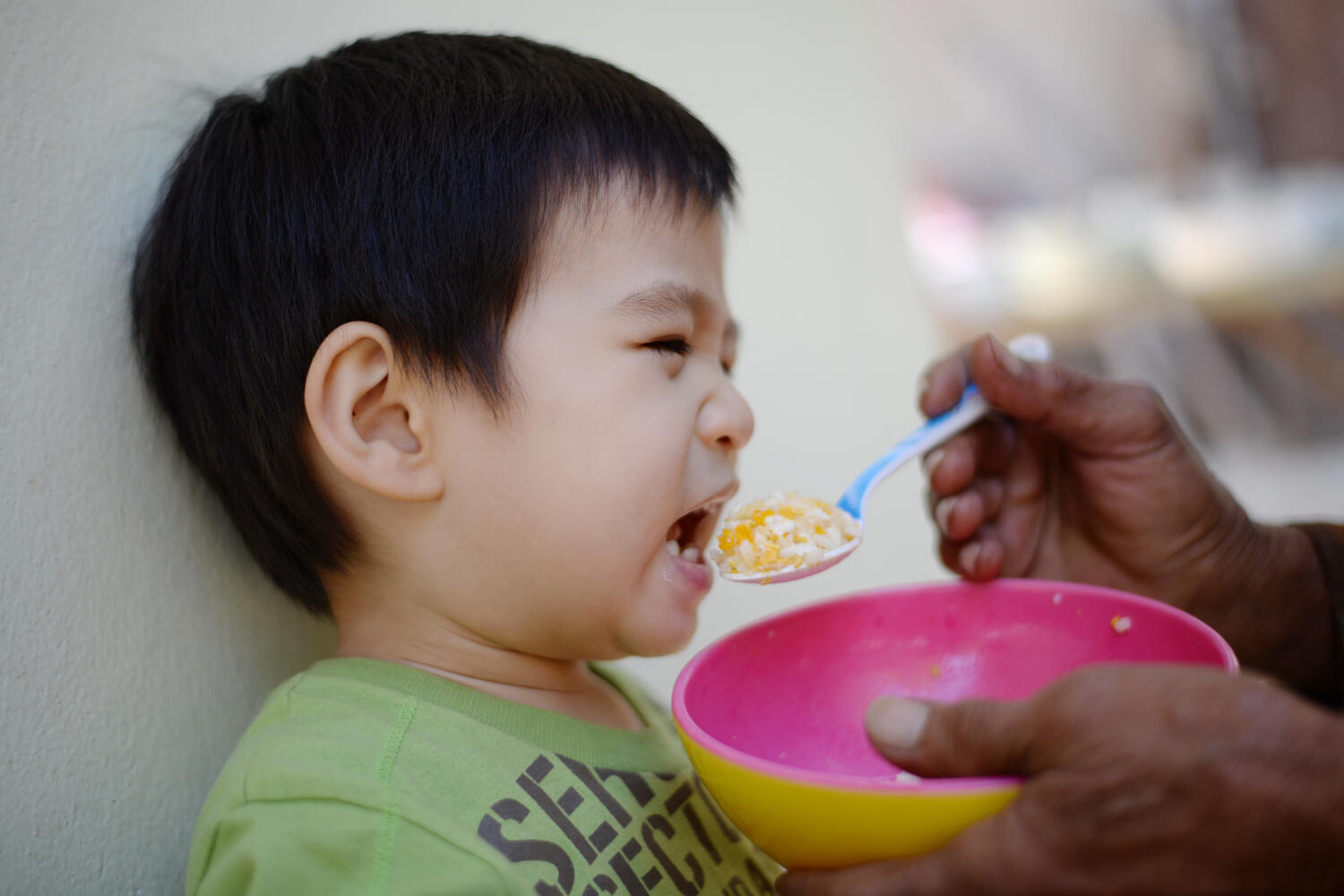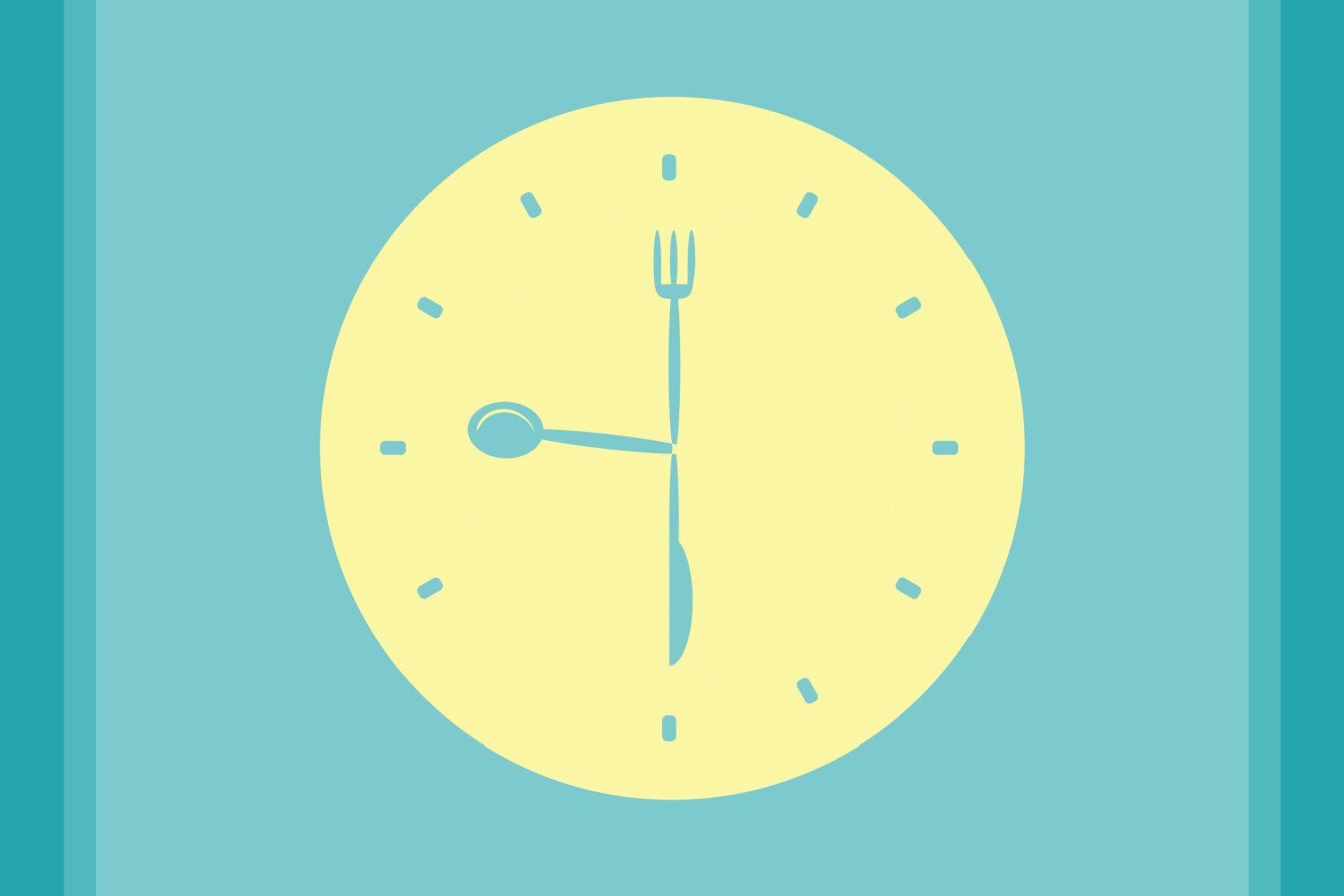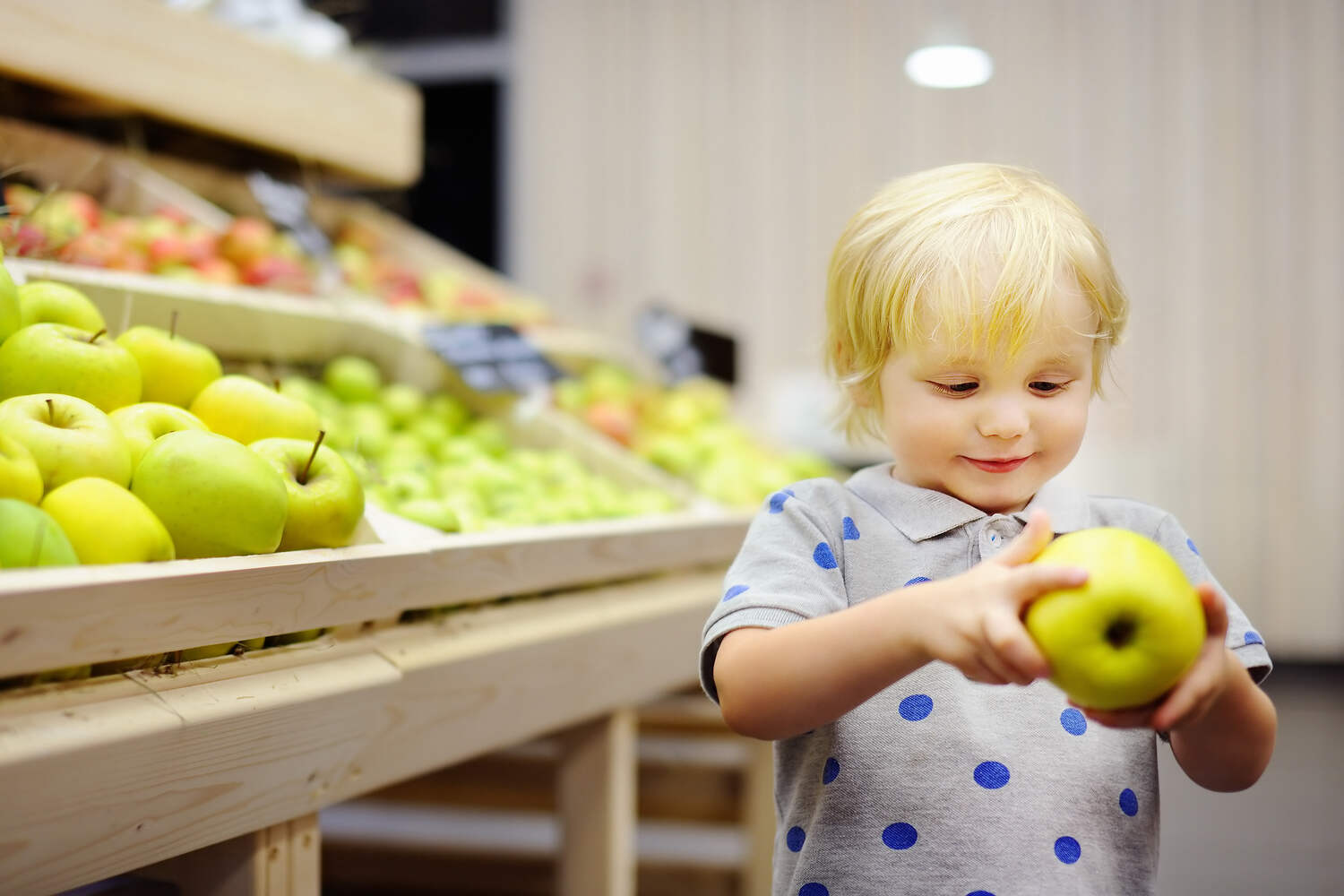
Fussy eating in toddlers is very common, especially during the second year. Some toddlers also become wary of eating new foods, which is again very natural. It can be a kid’s instinctive reaction when they perceive a food item to be unsafe. And they might be reluctant to try anything new. In the second year, toddlers tend to feel independent, as they can now walk, speak and do other stuff like adults, so when it comes to food, they love to assert their new found independence by outright rejecting to eat.
Your toddler may develop a liking for some foods, and then disregard them completely the next week. This is not absurd, but typical toddler behavior. And, no you are not alone in dealing with the issue of fussy eating in toddlers. Around 25% to 35% of toddlers are fussy eaters (1a). Read this article to find out more about why your toddler rejects food and tips to deal with fussy eating in toddlers.
In This Article
- Video Of Mastering Fussy Eating Solutions For Toddlers
- Why Does Your Toddler Reject Meals?
- Top 9 Reasons Behind Fussy Eating in Toddlers
- How to Tackle Fussy Eating in Toddlers?
- Tips to Ensure Best Nutrition For a Fussy Toddler
- FAQ’s
Video Of Mastering Fussy Eating Solutions For Toddlers
Why Does Your Toddler Reject Meals?

Fussy eating in toddlers can turn out to be a real nightmare, especially if this continues for a prolonged period. As a parent, one becomes completely agitated about their health. This is specially so if you have tried out all kinds of tactics and have failed miserably. It becomes important for you to embrace a nutritious and healthy diet for your toddler. Something that can help them overcome the habit of fussy eating and put your mind at rest. However you need to ensure you handle this issue sensitively and come up with effective methods to put an end to this problem once and for all.
Mostly, fussy or picky eating in toddlers is a passing phase and they outgrow it quickly. But sometimes there maybe an underlying reason for this loss of appetite or refusal to eat. Most often, after completing 1 year of age, the toddler’s growth cycle slows down, which means they do not need that much food as before. And, hence experience a loss in appetite.
Also, the new found independence which they discover is also a contributing factor behind their fussy eating. They exercise control by rejecting to eat. Another reason can be that they are so busy exploring and playing around that eating may seem like a hindrance, and hence they refuse food.
If your toddler is active and is gaining weight and are achieving their milestones, then there is no need to panic. If they are eating less, or not eating a certain meal or food, you can let it be. But, if fussy eating is accompanied by other symptoms like weight loss, weakness etc., then it is better to consult the doctor.
Top 9 Reasons Behind Fussy Eating in Toddlers

There can be multiple reasons behind fussy eating in toddlers. Sometimes parents may also contribute to this problem unknowingly. Some of the reasons why your toddler is a fussy eater are-
1. You Do Not Say ‘No’
You think saying no to your toddler’s wish for ice creams or processed food would mean you love them less. Or, you are too pressed for time and energy to cope with their tantrum. It is too difficult for you to not comply with your toddler’s preferences. And they know it!
2. You Think Junk is Okay
Parents may genuinely believe that it is okay to give your toddler junk food in moderation (2), or may be even once a day. You may think that toddlers do not have to worry about being fat and calories at a young age. However, obesity in kids is more real than you think.
[Read : Top 10 Ways You Are Making Your Child Obese]
3. You Always Provide a Favorite Processed Food as Second Choice
Every time your toddler says no to a healthy food, you tend to offer an unhealthy alternative in a bid to make them eat. And your little one knows that if they refuse to eat dal rice, it is only matter of time before you offer them a cheese toast. Soon, they start to develop a preference for the taste of the processed foods and reject healthy foods vehemently.
4. You Force Your Toddler to Eat a Lot in Every Meal
Some parents are hell bent on their toddlers eating everything that is put on the plate. This is a bad habit. Your toddler’s appetite might depend on a lot of things, including their day’s activities. Let your toddler guide you in terms of the quantity they want to eat. Running behind them with a plate of food would really do no good.
5. You/Others in Family Eat Meals Different Than the Toddler

You might not be leading with examples at your home. When you force your kid to eat broccoli while you yourself turn your face away from it, it does not teach them a thing on healthy eating. Eat a variety of food. Eat it in front of your toddler and show visibly that you are enjoying your food. Feed your toddler the same food as yours.
6. Your Toddler is Becoming More Independent
Your toddler wants to control what they want to eat. Saying no to food might be your toddler’s way of showing independence. As with other things, they are testing your threshold to see how far they can go with their stubbornness. This is normal and most toddlers at the age of 2 years tend to assert their independence.
7. Your Toddler Does Not Get Enough Exercise
If you toddler does not engage in outdoor play, then their appetite may be poor. It is imperative that kids play and run about. This not only helps in their physical development but also enhances their motor skills. Playing with other kids also contributes to your toddler’s social skills.
8. Your Toddler is Going Through a Growth Cycle
A toddler’s eating habits fluctuate with their growth cycle. You will notice them eating more during growth spurts and being picky at other times. This happens more frequently when your kid is between 1 and 6 years of age.
9. Toddlers Don’t Like New Food
Toddlers and young kids tend to dislike new food items (1b). So, if are giving a new food to them, they might reject it outright in the first instance. Parents perceive this rejection as fussy eating. But, try and introduce the same food item after several days. Do this multiple times without forcing the kid to eat. You may be surprised as most of the times, they may learn to try it and even like it.
How to Tackle Fussy Eating in Toddlers?

First, you need to find out why your toddler is rejecting food. They may be refusing to eat because of several reasons. Some toddlers might reject solids, some may not eat at all. Given below are some of the most common eating problems in toddlers-
- Your toddler does not eat anything at all
- They refuse to eat solids
- Your toddler is extremely fussy
- They are unable to chew food
- Your little one does not eat any dinner
You need to make sure your precious bundle’s diet comprises of-
- Nutritious fruits and veggies
- Dry fruits and nuts
- Grains and cereals
- Fish and lean meats
- Dairy products
[Read : The Right Nutrition for Your Toddler]
Tips to Ensure Best Nutrition For a Fussy Toddler
The trick lies in preparing lip smacking and dishes your toddler will be attracted to and unable to resist. This is not as easy as you imagine. Getting a headstrong toddler to eat healthy meals is not an easy task.
Whatever be the issue, it is absolutely necessary to get to the root of the problem as there are chances this may lead to a behavioral problem if left neglected. Here are some amazing pointers which can help you in handling fussy eating in your toddler:
1. Entice Your Toddler With Finger Foods

This is one amazing tip which can really help your toddler overcome this problem. Try cooking finger foods which your little one can eat own their own without your help. Finger foods are your best bet as they look attractive and do not come served as ‘food’.
2. Introduce Variety Into Your Toddler’s Menu

There may be a lot of foods your little one does not like eating. Instead of repeatedly trying to force them to eat those, try to offer something different. Indulge your toddler with different recipes of their favorite food. Offer healthy alternatives which will add variety to their menu.
3. Serve Hot and Evenly Textured Food

It is extremely important that you feed your toddler warm food. Also give them dishes which are evenly textured. The aroma of food that is fresh and appeals visually will make your kid eat it too.
4. Introduce Colorful Foods

Colors appeal a lot to little kids. To make your toddler eat, offer colorful foods to them. You can even play games with your toddler and ask them to identify the colors on their plate. It is also a great way to introduce different colored vegetables and fruits and make them eat it.
5. Do Not Force Feed Your Toddler

This is a big ‘NO’ which you should never attempt. Your toddler may develop an aversion to eating altogether if you force food down their throat. Also never set strict eating etiquettes at such a young age which makes them feel extremely claustrophobic at the dining table.
6. Fix Regular Meal Times

It is important your toddler has their food everyday at the same time. This will attune their system to eat food at correct intervals which is vital for their health.
7. Help Your Toddler Choose Their Food

Offering choice to your toddler in terms of what they want to eat helps a lot. It provides them the assurance they are eating what they like and nothing is being forced on them. As toddlers like to exercise their new found independence, this tactic works with them. But, offering choice doesn’t mean you give them endless options or offer junk food. It can be as simple as asking them to choose between an apple and a banana. Whichever fruit they choose, they will feel its their choice.
[Read : 12 Helpful Tips When Taking Toddlers Grocery Shopping]
8. Do Not Let Them Overeat
You need to watch for overeating (3) habits in your toddler and put a gentle stop to it. This is something which can turn out to be a big issue if ignored. Overeating can be a serious health problem when your toddler grows up (4).
9. Make Mealtime Fun

When your toddler relishes what he eats, it becomes so much easier to feed them effortlessly. Refrain from turning mealtime a serious and stressful time for both you and your toddler. Take the pressure off by letting your toddler eat on their own. Let them decide their meal portion as well. They know how much they want to eat. Remember no kid will remain hungry. Let them eat according to their appetite and not according to your expectation. This will make life easy for both of you. If your kid is allowed to choose how much he wants to eat, they become so much easier to handle.
The above mentioned tips are sure to be of great help to handle fussy eating in your toddler. Remember fussy eating or picky eating is a common developmental issue. It too shall pass. And, it will not cause any permanent impact on your toddler’s growth in the long run (5). Have patience and keep on trying by offering a variety of food to them. Avoid mealtime distractions and refrain from giving ‘rewards’ to make them eat. If fussy eating or refusal to eat continues despite several efforts on your part, please consult the doctor once. Relax and take the pressure off.
FAQ’s
1. Is Fussy Eating Common in Kids?
Yes. Fussy eating is a common developmental issue in toddlers and young kids. It usually passes with time. Fussy eating is unlikely to have any permanent negative impact on your kid’s health (5).
2. How Long Does Fussy Eating Last in Toddlers?
Fussy or picky eating in toddlers is a common issue. Parents across the globe face this issue with their toddlers. This phase of fussy eating usually lasts from the ages of 2 to 4 years. Around 2 years of age toddlers develop a sense of independence and want to exercise control over everything. Not eating, refusing to eat, are some of the ways for them to exercise control over what goes into their mouth. Have patience and soon this too shall pass.
3. When Should I Worry About my Toddler’s Picky Eating?
You should be concerned if your toddler throws up or gags at the sight and smell of certain food items. They eat only specific food items, in specific textures like blended or pureed, they avoid eating whole foods, crispy textures, etc. If you feel concerned about your toddler’s weight gain and growth, then it’s better to consult the doctor.
4. Why is My Toddler Refusing to Eat Their Favorite Food?
Refusing to eat is a common problem faced by toddler parents. This has nothing to do with the fact that there is something wrong with the food (although in rare cases it may be so). But the fact that suddenly your toddler is refusing to eat even their favorite food means they are trying to control what they eat. They may even be on a food strike! But don’t worry this will not continue for long. They may even be bored with their favorite food and may want something new. Trick is to not force them or bribe them to eat. Leave the food around and go about your work. When they feel hungry, they are bound to come and eat their meal. Running after them or coaxing will not work with your independent toddler.
References
- The ‘picky eater’: The toddler or preschooler who does not eat – [https://www.ncbi.nlm.nih.gov/pmc/articles/PMC3474391/]
- Socio-demographic and lifestyle determinants of ‘Western-like’ and ‘Health conscious’ dietary patterns in toddlers – [https://www.cambridge.org/core/journals/british-journal-of-nutrition/article/sociodemographic-and-lifestyle-determinants-of-westernlike-and-health-conscious-dietary-patterns-in-toddlers/1A61106C1F9378EE6301252327BCA2CE#]
- Nutrition in Toddlers – [https://www.aafp.org/pubs/afp/issues/2018/0815/p227.html]
- Toddlers’ Impulsivity, Inhibitory Control, and Maternal Eating-Related Supervision in Relation to Toddler Body Mass Index: Direct and Interactive Effects – [https://www.ncbi.nlm.nih.gov/pmc/articles/PMC6717555/]
- Picky eating in children: causes and consequences – [https://www.ncbi.nlm.nih.gov/pmc/articles/PMC6398579/]
Read Also: How to Effectively Say No Your Child?
